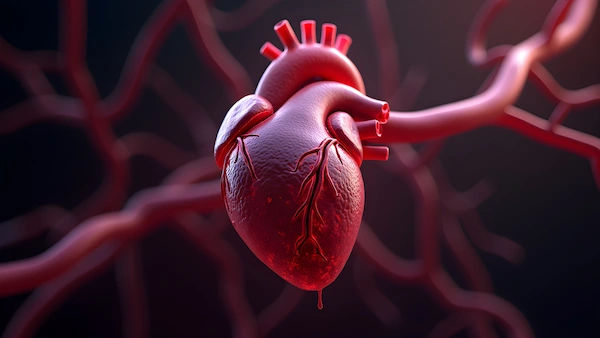- Male
- 29 Years
- 20/02/2025
I'm a bit concerned after my recent doctor visit. I had some left shoulder pain and my hands felt a bit numb after traveling, so I went to get checked out. The doctor had me do an ECG and mentioned that the QRS interval was 119ms, along with some other abnormalities, then suggested an echo just to be sure. The echo results seemed alright, showing no PAH or RWAH, and my LV systolic and diastolic function looks fine with an EF of 68. They didn't find any clots or vegetation, and the doctor said my echo is fine, but I'm still worried about the QRS interval on my ECG. Should I be looking deeper into this, or is it nothing too concerning?
Answered by 1 Apollo Doctors
The ECG report showing a QRS interval of 119ms may indicate a slight delay in the electrical conduction through the heart's lower chambers. This could be due to various reasons such as conduction abnormalities or certain heart conditions. However, since your screening echo came back normal with no significant findings, it is less likely to be a cause for concern. To alleviate your left shoulder pain and numbness in hands, you can take over-the-counter painkillers such as ibuprofen (e.g., Advil) at a dose of 400mg every 4-6 hours as needed for pain relief. Additionally, you can also consider using topical pain relief creams such as diclofenac gel for localized relief. It is always advisable to follow up with your doctor for further evaluation and management based on your individual health condition.
Dr. Ibrahim Suggests...
Consult a Cardiologist
Answered 04/07/2025
0
0


Ask Apollo
AI powered Health Chatbot
-
QRS Interval Concern
- A QRS interval of 119ms is slightly prolonged. It may indicate a conduction delay but is not necessarily alarming if asymptomatic and without structural heart disease.
-
Action Steps
a. Monitor symptoms: Note any changes in chest pain, palpitations, or dizziness.
b. Follow-up: Discuss with your cardiologist for further evaluation if symptoms persist or worsen. -
General Advice
- Maintain regular check-ups and a healthy lifestyle to support cardiovascular health.
Recommended next steps
Consult a Cardiologist
Answered 10/09/2025
0
0
More Cardiology Health Queries
View allI'm a 75-year-old man and I'm feeling a bit worried. Back in 1977, I had a T-wave inversion and recently, I developed postural hypotension. My cardiologist checked my ECG, 2D echo, and TMT, and everything seemed normal except for the old T-wave inversion in V4, V5, and V6. He prescribed me to take Deplatt CV once a day, which I've been doing since May 2017. Lately, I've come across some pretty scary stuff about clopidogrel on the internet, and it has me feeling anxious. Could you please let me know if it's really safe for me?
Visit Physician for evaluation and appropriate management
Answered by 1 Apollo Doctors
I'm a bit worried about my ECG report that mentions 'mild ST depressions in the inferolateral leads.' Is this something serious that I need to be concerned about? Can it be fixed or managed in some way? I'm not really sure what it means and would love some guidance.
Mild ST depressions in the inferolateral leads on an ECG can indicate underlying issues such as myocardial ischemia (reduced blood flow to the heart muscle), which can be a cause for concern. It's important to follow up with your cardiologist for a comprehensive evaluation to determine the exact cause. They may recommend further tests such as an echocardiogram, stress test, or coronary angiography to assess the severity and plan appropriate treatment. Management may include lifestyle changes, medications, or procedures to improve blood flow to the heart. Please discuss these findings with your healthcare provider for personalized advice and treatment.
Answered by 1 Apollo Doctors
I was recently diagnosed with sinus tachycardia before my laparoscopic surgery and I'm a bit concerned should I be worried about this? The doctors mentioned it during my pre-op tests but didn't go into much detail. Is this something serious or just a temporary thing?
In most cases, sinus tachycardia is not life-threatening and does not need to be treated. If an underlying condition is causing your sinus tachycardia, it needs to be treated. Treatments for sinus tachycardia include: Lifestyle changes
Answered by 1 Apollo Doctors
Disclaimer: Answers on Apollo 247 are not intended to replace your doctor advice. Always seek help of a professional doctor in case of an medical emergency or ailment.




